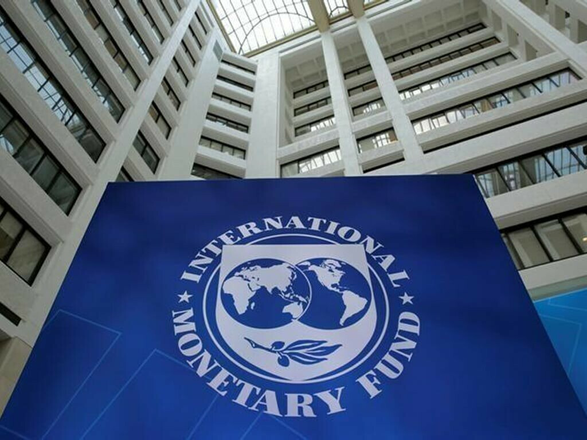You are here
IMF warns of risks as central banks tighten
By AFP - Apr 18,2018 - Last updated at Apr 18,2018

Vitor Gaspar, director of the International Monetary Fund's Fiscal Affairs Department, speaks during a Fiscal Monitor briefing at the 2018 IMF/World Bank Spring meetings in Washington, DC, on Wednesday (AFP photo)
WASHINGTON — The International Monetary Fund (IMF) urged central banks on Wednesday to take a gradual and transparent approach to tightening monetary policy, warning that unexpected moves could shock the global economy.
The fund cautioned that investors and financial markets expect a steady approach to monetary tightening based on the belief inflation will remain relatively tame.
But the IMF pointed to some fragilities in global finance after a lengthy period of easy money policies and low interest rates, including a flood of high-risk bonds, record-high debt levels and lofty prices for risky assets.
If conditions change abruptly that could even derail the economic recovery, the fund warned.
"Financial vulnerabilities, which have accumulated during years of extremely low rates and volatility, could make the road ahead bumpy and could put growth at risk," the IMF said in its Global Financial Stability Report, a twice-annual analysis.
For example, a sudden acceleration of inflation in the United States could lead the Federal Reserve to raise interest rates more quickly than currently expected.
Tobias Adrian, director for the IMF's Monetary and Capital Markets Department, acknowledged that uncertainty about inflation is currently "very low", but warned that markets could have an outsized reaction to any spike.
Other factors also could hit markets, including US-China trade tensions, which the IMF flagged as one of the most concerning risks to global recovery in a separate report released on Tuesday.
Adrian said talk of a US-China trade war had not so far significantly affected financial conditions, even as jitters sent global share prices lower.
"In recent weeks, discussions around trade have increased investor uncertainty and as a result financial conditions have tightened somewhat, but remain easy," he told reporters.
"What we are flagging is that at some point markets see shocks in inflation that raise inflation uncertainty and when that happens" rates could rise quickly and financial conditions would tighten, he said.
Emerging markets would be especially vulnerable to "spillovers" if that happens, the report cautioned. "Gradual and well-telegraphed" moves by advanced economy central banks have so far been favourable for emerging economies, but financial flows could fall by "at least one-quarter" if central banks mishandle the transition, the fund said.
The analysis is the latest to tackle the myriad policymaking challenges as the world moves towards ending a long period of low interest rates and monetary stimulus enacted after the 2008 financial crisis.
The US Federal Reserve has undertaken a series of interest rate hikes over the last two and a half years, and the European Central Bank has signaled it plans to soon end its stimulus programme.
While these moves are necessary, central banks should "maintain accommodation as needed" and raise rates in "a gradual and well-communicated manner", the fund said.
"Gradualism and clear communications are crucial given the confluence of still relatively low inflation, easy global financial conditions, and rising financial vulnerabilities," the report said.
Related Articles
FRANKFURT, Germany — Eurozone interest rate setters should proceed "gradually and cautiously" in loosening monetary policy as there are stil
DUBAI — Most of the Middle East and North Africa's non-oil producing economies are experiencing a "gradual slowdown", the International on M
WASHINGTON — Central banks should "act resolutely to bring inflation back to target" after figures hit multi-decade highs, the International














